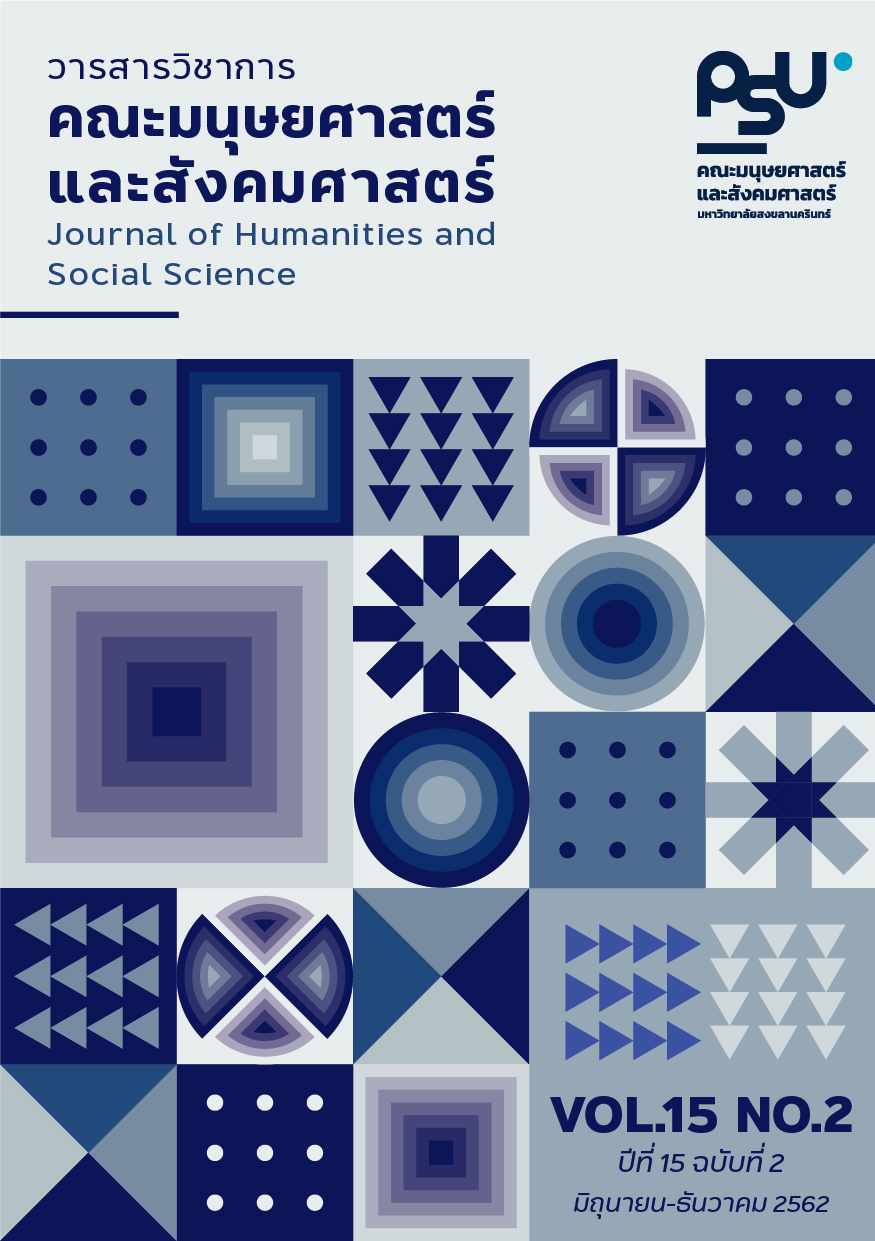Awareness of Waqf of Thai - Muslims in the Southernmost Provinces of Thailand
Keywords:
Waqf Awareness, Waqf Principle, Thai Muslims, Southern most Provinces of ThailandAbstract
Waqf in Muslim society have developed continuously from the time of the Prophet Muhamad (s.w.) until today. Waqf can help improving public infrastructure and rising the standard of living of people. In Thailand, Waqf has been practiced for decades, but there is lack of knowledge among Muslims on this topic. It, thus, diminishes the role of Waqf in socio-economic development. The objective of this study is to examine the awareness on Waqf principles and practices among Thai Muslims in southern provinces. The researchers selected Pattani and Satun as location of the research and 400 samples were selected using simple random sampling technique. Descriptive i.e. frequency, percentage, mean and standard deviation and inference statistics i.e. correlation using Pearson Product Moment Correlation Coefficient were employed to analyze the collected data.
The findings in this study show that people have good general knowledge on waqf principles. Their levels of awareness on characteristics and status of Waqf level in Thailand are moderate. The correlation shows that there is a small positive relationship between awareness of Waqf and understanding on Waqf. In addition, the result indicates that there is a small positive relationship between awareness on Waqf and the characteristics of Waqf. These findings imply that the success of Waqf institution depends significantly on spreading knowledge and understanding of Waqf to the society.
References
บะห์รุดดีน บินยูโซ๊ะ, นุมาน สะอะ, ฮามีดะห์ มาสาระกามา และแอสซูมานี มาโซ. 2555. การบริหารจัดการทรัพย์สินวากัฟ (ศาสนสมบัติ) ตามหลักการศาสนาอิสลามในประเทศมาเลเซีย : กรณีศึกษาการทำงาน ของสำนักงานศาสนาอิสลามเมืองอลอร์สตาร์ รัฐเกดะห์ ประเทศมาเลเซีย. สำนักงานกองทุนสนับสนุนการวิจัย.
บุญธรรม กิจปรีดาบริสุทธิ์. 2540. คู่มือการวิจัย การวิเคราะห์ข้อมูลด้วยโปรแกรม SPSS FOR DOS AND WINDOWS. กรุงเทพฯ. เจริญดีการพิมพ์.
หาเฉม บิลก่อเด็ม. 2554. การจัดสวัสดิการเพื่อคนด้อยโอกาสในชุมชนมุสลิม : กรณีศึกษากองทุนซะกาตในชุมชนมุสลิมมัสยิดบ้านเหนือ ตำบลคูเต่า อำเภอหาดใหญ่ จังหวัดสงขลา. สงขลา: วิทยานิพนธ์ศิลปศาสตรมหาบัญฑิต สาขาพัฒนามนุษย์และสังคม. มหาวิทยาลัยสงขลานครินทร์.
Ahmad, M.M. & Safiullah, M. (2012). Management of Waqf Estates in Bangladesh: Towards a Sustainable Policy Formation. In Waqf Laws and Management (with Special Reference to Malaysia). Institute of Objective Studies. New Delhi, 229-262.
Islahi, A. A. (1992). Provision of public goods: role of the voluntary sector (waqf) in Islamic history. FINANCING DEVELOPMENT.
Mohammed Obaidullah. 2014. A framework for analysis of Islamic endowment (waqf) law. Islamic research and training institute: A member of the Islamic development bank group.
Zuraidah Mohamed Isa, Norhidayah Ali and Rabitah Harun. 2006. A Comparative Study of Waqf Management in Malaysia. 2011 International Conference on Sociality and Economics Development.
Downloads
Published
How to Cite
Issue
Section
License
บทความนี้ได้รับการตีพิมพ์เป็นของวารสารวิชาการคณะมนุษยศาสตร์และสังคมศาสตร์ คณะมนุษยศาสตร์และสังคมศาสตร์ มหาวิทยาลัยสงขลานครินทร์ วิทยาเขตปัตตานี






